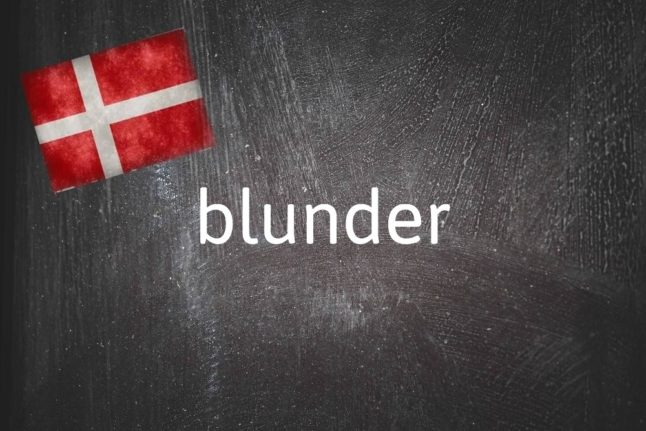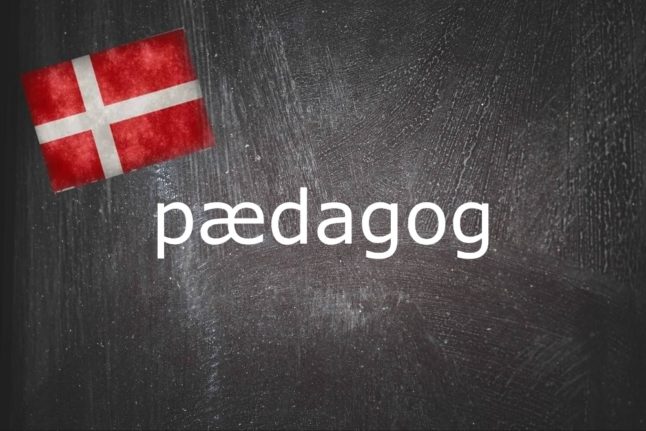What is blunder?
The present tense of the verb at blunde, meaning “to doze”, to “be half asleep” or “to nap”.
Like the English “nap”, it can also be used as a noun, en blunder, although this is much less common than the most popular word for “a nap” in Danish, en lur. The latter is a word any parent to small children will be very familiar with.
Old Norse had the word blundra, meaning “to shut one’s eyes”, and the word probably shares an origin with the word blind (unable to see), found in Danish, German and English among other northern European languages.
In Swedish, blunda still means “to shut one’s eyes” and can be used literally or figuratively, an example of how the definition of a word can shift in different directions in closely related languages over time, which often happens if there are other competing synonyms.
Swedish also has the related word blund, which like the Danish blunder refers to a sleep. You often hear it in the negated sense, as in jag har knappt sovit en blund i natt (I barely got a wink of sleep last night).
Why do I need to know blunder?
It appears that blunder is another example of a false friend with the English word “blunder”, which means an error or careless mistake.
While this is essentially true, in some cases blunder can be used in a context which means something close to “blunder” in a figurative sense, although the literal meaning is still to doze off.
For example, a situation in which somebody loses concentration, resulting in them squandering an advantage or position, might be put down to a blunder:
Hun var omkring 50 meter i front da løberne nærmede sig målet, men tog en blunder og blev overhalet i sidste strækning.
She was in the lead by around 50 metres as the runners approached the finish, but fell asleep and was overtaken on the final stretch.



 Please whitelist us to continue reading.
Please whitelist us to continue reading.
Member comments